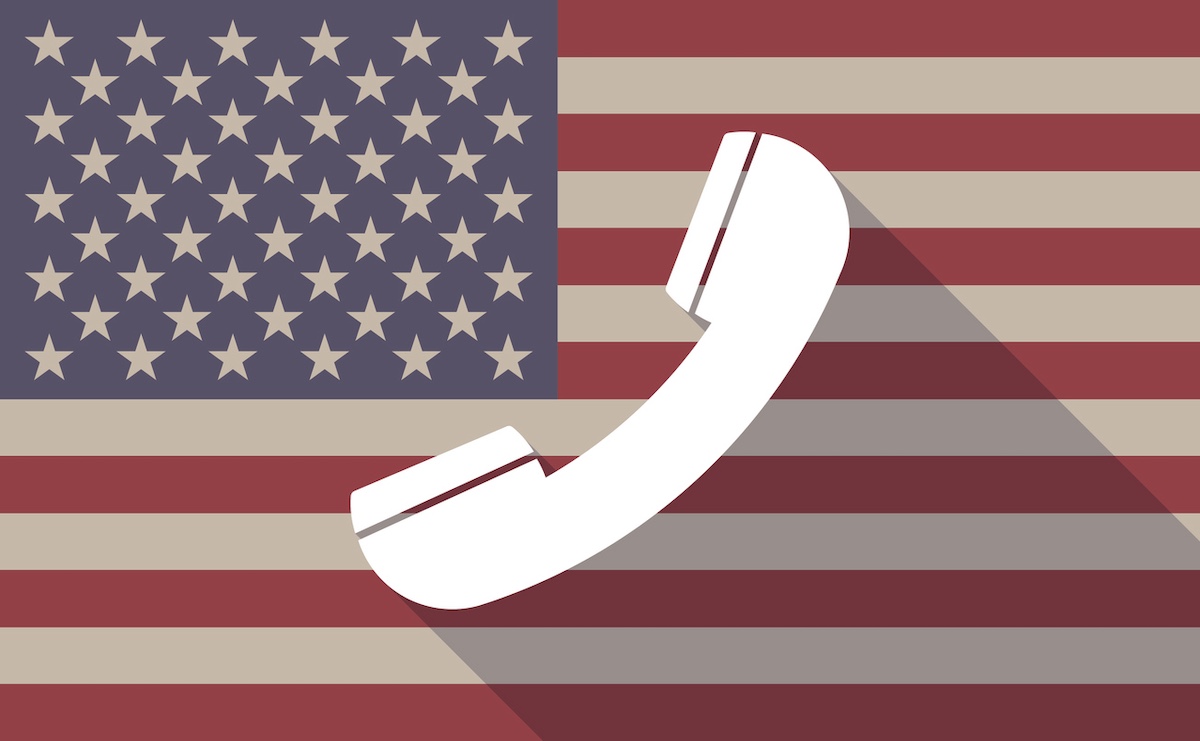As onshoring—or domestic outsourcing—continues to grow in popularity, many companies are wondering if it’s worth investing in domestic outsourcing help, especially considering that it’s generally more expensive than offshoring.
Is the investment worth it?
For many companies, onshoring has a number of benefits compared to offshoring, including:
- higher levels of collaboration due to more similar time zones
- easier ability to visit and interact with call center and employees
- stronger cultural and linguistic understanding
- higher quality of output and customer service (in many cases)
In this article, we’ll walk you through seven major benefits of US call centers compared to offshore models so you can make the right decision for your company.
1. Cultural and Language Alignment with Customers
Cultural and linguistic alignment makes a massive difference in the quality of customer service provided, and it’s obvious that US-based call centers will have a stronger cultural and linguistic alignment than those that are located further away. Regardless of training, development or coaching, nothing beats first-hand experience with a culture and native-level fluency, which can generally only be found in or around any given country.
With customer service, miscommunication due to cultural or language differences are common with offshoring, and they can create major problems for customers. Not only does it take longer to come to effective solutions (thereby reducing productivity and customer satisfaction), but it also aggravates customers who then feel that your company does really understand or care about them.
2. Economic Benefits to the Local Economy
US call centers also allow you to contribute tangibly to local economies and keep business domestic. When you do so, you create more jobs in the US and contribute to the economic growth in the US, or even your own town or state.
While it’s not always possible to hire every agent locally, the economic benefits of hiring US-based agents are obvious. US call centers also contribute to employee development and career growth for employees, providing stable, secure work for junior-level employees while allowing them to gain valuable skills and competencies for career growth.
3. Quality Control and Training Standards
Compared to offshore call centers, the quality control and output of US call centers is one of their biggest benefits. US call centers generally have:
- stronger quality control measures
- higher training standards
- higher-quality outputs and deliverables
compared to offshore locations. In addition, onshore locations allow you to have more control and oversight over quality and other day-to-day operations compared to offshoring locations, which will be far removed from your day-to-day and difficult to visit and interact with in real-time.
With higher training and quality standards, of course, comes better service levels, and this has a direct impact on customer satisfaction, retention and loyalty. Consider the data:
- 68% of customers will pay more for services or products from a company with great customer service.
- 93% of customers are more likely to make repeat purchases when a company offers them great service
- 65% of customers have changed brands due to a poor customer service interaction
Since customer service is so integral to customer loyalty and retention, it pays dividends to protect and uphold the quality of your service. With better quality control, stronger training methods and overall higher standards in US-based call centers, they offer a strong case for more effective outputs and results.
4. Regulatory Compliance and Data Security
When it comes to data security, privacy and regulatory compliance, US-based call centers come out on top again. For US-based businesses, there are a number of regulations related to customer data and privacy you need to comply with—SOC-2, PCI compliance, TCPA, call monitoring regulations, GDPR (for global businesses) and more. And if you’re in a specialized or highly-regulated field like healthcare or finance, there’s even more industry-specific regulations to be aware of.
Clearly, it’s easier to ensure that all of these regulations are being complied with when you’re working with another US-based business, rather than an offshore provider who may or may not be familiar and compliant with US regulations. In addition, ensuring compliance when data is moved offshore can introduce even more regulations, as some industries have rules and restrictions around how data is handled when stored or used offshore.
In short: working with a US-based call center is much easier and saves a lot of time and headaches when it comes to ensuring compliance. Combine that with the fact that domestic call centers tend to have stricter standards when it comes to data security and privacy, and you have some major reasons to go with an onshore model.
5. Response Times and Accessibility
US call centers also tend to be easier to work with due to proximity and shared (or overlapping) time zones. When working with a call center in, say, the Philippines, your time zones could be anywhere from 13-16 hours apart—not exactly conducive to collaboration.
Time zones not only limit your internal collaboration and accessibility to your call center, but can also impact service accessibility. While 24/7 service options are common, especially when offshoring, working with a call center in a different time zone can make it difficult to staff the right number of agents during your peak periods and ensure appropriate response times.
In some industries, a slightly delayed response may not be that big of a deal. But in others—for example, Healthcare, Finance, Consumer Services, Luxury Brands—immediate responses are a must for customer satisfaction. And customer expectations for service levels and response times are generally rising across the board:
- 90% of customers say an “immediate” response is very important when they have a customer service question
- 60% of customers say an “immediate” response is one that is fulfilled within 10 minutes or less
- 60% of customers feel that waiting on hold for even one minute is too long for phone calls
In light of the data, working with US call centers can help you meet and exceed customer expectations by providing more immediate service, increased accessibility and faster response times.
Ready to perfect your CX?
6. Customer Preferences and Perceptions
Offshoring your call center can also have a negative impact on customer perceptions of your company. For many customers, offshore call centers create a perception of a low-quality brand that can’t afford or manage support anywhere else. Language barriers make misunderstandings common, and many customers are willing to just give up and shop somewhere else rather than deal with the hassle. Keep in mind that a whopping 92% of customers will switch brands are just three or fewer bad customer service experiences!
Not only do customers hate having to deal with agents they can’t understand well—or who can’t understand them, or are just following a script, as many offshore call centers train their agents to do—they also carry that perception of your brand forward. If you want to create a brand reputation for being customer-centric, luxury, or simply caring about and knowing your customers, a US based call center is the way to go.
7. Long-term Customer Relationships and Loyalty
Finally, don’t overlook the impact your call center has on your long-term relationships with your customers and customer loyalty.
Customer service plays a significant role in your customer loyalty and service, as ongoing data strongly indicates:
- Customers are four times as likely to switch to a competitor if their issue is related to customer service.
- 89% of customers are more likely to make another purchase if they’ve had a good customer service experience.
- 3 out of 5 customers say that good customer service is essential for them to feel loyal to a brand.
In many ways, your long-term customer loyalty rides on your level of customer service. Are you ready to deliver?
US call centers are better served to foster this loyalty and long-term relationships for many reasons. For one, domestic agents have more overlap in terms of language and culture with your audience, allowing for easier, more genuine connections. It’s also easier to oversee a US call center, allowing your agents more agency and freedom to create personalized solutions and really serve the customers’ needs. By doing so, you can create exceptional customer service experiences that retain customers for months and years to come.
Challenges and Considerations for US Call Centers
With all of that in mind, you may be wondering why anyone uses an offshore model at all. It’s clear that US call centers provide:
- stronger customer connections and relationships
- higher levels of quality and training
- more control over operations and data
- stronger data privacy and security standards
- greater brand trust and loyalty
- and more—
But US call centers come with their own challenges as well: namely, the cost. US call centers typically have higher operational costs compared to offshore ones, which can make scaling and managing large operations more difficult.
As a result, it pays—literally—to address these challenges in advance with your potential call center and find ways to optimize efficiency and maximize your savings with a US-based call center. For many companies, a hybrid call center is another good option, one that allows you to use US-based agents for customer-facing communications and offshore employees for behind-the-scenes tasks that don’t require customer interfacing.
Finding The Right US Call Center Partner
Once you’ve decided to use a US call center partner, finding the right partner is still essential—not every domestic call center is created equal.
Here are some key factors to look for to choose the right outsourcing partner:
- Expertise and experience. Your provider should have significant experience in the customer service industry, as well as expertise in your industry and with your audience. Look for providers who have worked with companies similar to yours in the past.
- Results. Look for reviews, testimonials, case studies, or other signs that demonstrate your provider can deliver the results they’re promising. If they don’t have these, ask to speak to current clients about the value they feel they’re getting.
- Communication. Good communication is crucial to creating a successful partnership. A provider who offers clear, honest and consistent communication from the start is likely to provide you with a better partnership.
- Flexibility and scalability. Look for a provider who offers flexible services and pricing that can scale with you as you grow. Your provider should be willing to work with you to meet changing needs in different seasons.
- Privacy and security. Your provider should have clear guidelines for ensuring privacy and security of customer data, as well as be compliant with any relevant regulations such as HIPAA or PCI-compliance.
- Quality standards. Agree on SLAs (Service Level Agreements) upfront so that you have clear guidelines for quality service levels. In addition, look for a call center that has a strong QA process to ensure quality is being met consistently.
Finding the right call center is easy—but at Global Response, we make it a bit easier. With 40+ years of experience in managing customer service and improving customer experiences, our US call centers are the perfect solution to any of your customer service needs.
Curious how a US-based call center can help improve your brand reputation and customer satisfaction? Connect with a Global Response agent today—we’ll show you how.




